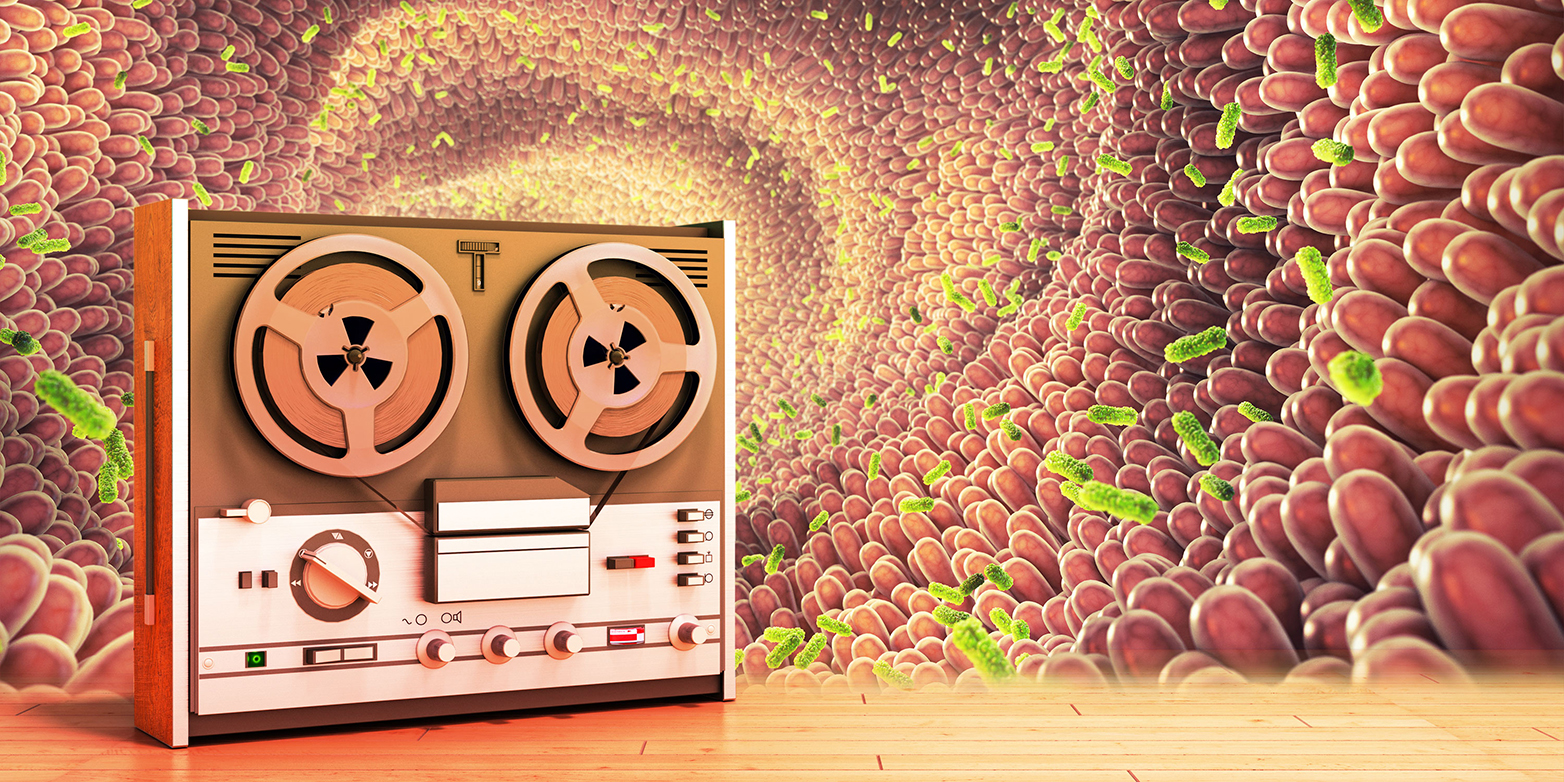Bacteria with recording function capture gut health status

Researchers from ETH Zurich, University Hospital of Bern and the University of Bern have equipped gut bacteria with data logger functionality as a way of monitoring which genes are active in the bacteria. These microorganisms could one day offer a noninvasive means of diagnosing disease or assessing the impact of a diet on health.
Our gut is home to countless bacteria, which help us to digest food. But what exactly do the microorganisms do inside the body? Which enzymes do they produce, and when? And how do the bacteria metabolise health-promoting foods that help us avoid disease?
To obtain answers to such questions, researchers at the Department of Biosystems Science and Engineering at ETH Zurich in Basel modified bacteria such that they function as data loggers for information on gene activity. Together with scientists from University Hospital of Bern and the University of Bern, they have now tested these bacteria in mice. This is an important step towards using sensor bacteria in medicine in the future for applications such as diagnosing malnutrition and understanding which diets are good for an individual.